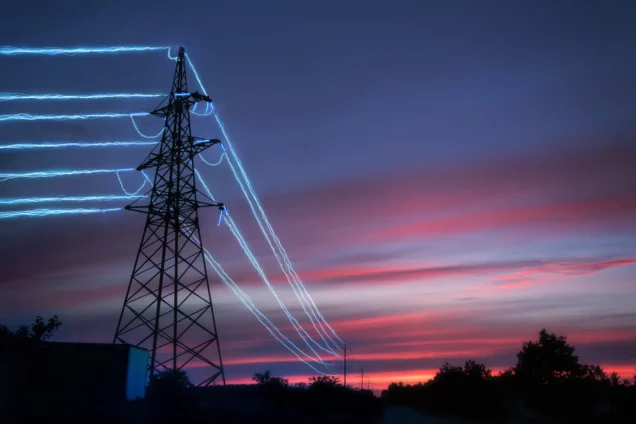Ghana’s energy sector is a debt making-machine, accumulating approximately $1 billion in debt annually, with around $500 million stemming from excess capacity charges.
According to a 2023 IMF assessment of Ghana’s energy sector, the West African nation has “almost doubled electricity tariffs over the past year to bring them close to the cost recovery level, but distribution and commercial losses persist.”
In fact, below-cost-recovery tariffs (usually as a result of exchange rate fluctuations), distribution and recovery losses, and excess capacity combined with take-or-pay contracts have led to large financial shortfalls over the past few years. By end-2022, the IMF estimated Ghana’s outstanding energy sector debt had reached $1.6 billion owed mainly to IPPs and fuel suppliers, and was nearing $2 billion.
In IMF’s assessment, “the government continued to accumulate payables during the first half of [2023], hence breaching the related program indicative target”. It stressed that non-energy sector payables declined, but energy sector payables increased due to low recoveries in the sector, tight financing conditions, and pending negotiations with Independent Power Producers (IPPs).
During foreign exchange crises, the energy sector faces challenges due to the majority of power generation costs being in dollars while revenue is primarily in cedis, resulting in significant exchange losses during debt settlements.
According to the World Bank, Ghana incurs losses of over $680 million yearly due to load shedding or power outages. The Electricity Company of Ghana (ECG) recently disclosed that it issued over 100 power outage notifications in the first two and a half months of this year, primarily due to maintenance activities. This information was shared in response to a request from the Public Utilities Regulatory Commission (PURC) for records of power outage notifications in the current year.
Among the queries posed by PURC was a request for a load shedding schedule, and the ECG's response to this demand was expected by March 27th, which was the only outstanding response out of three inquiries made of the power distributor.
Ghana Grid Company (GRIDCo), which is responsible for the transmission of electricity from generation grounds to power distributor, ECG, says it has closely monitored Ghana's power generation crisis since the beginning of March 2024, acknowledging the challenges in meeting the country's electricity demand. The curtailment of power exports since March 27 reflects the severity of the situation, highlighting the need for immediate attention and strategic planning.
Ghana's current peak demand has surged to 3,618 MW, significantly exceeding the available capacity of 3,251 MW. With an installed capacity of 5,626 MW, the nation is only utilizing approximately 58% of its total capacity, leaving a considerable deficit of 2,375 MW. This deficit is compounded by a 740 MW shortfall attributed to ongoing maintenance, further straining the electricity supply infrastructure.
Among the maintenance-related issues, 330 MW remains uncertain in terms of restoration timelines, adding complexity to the grid's stability. Additionally, 4 thermal plants, collectively capable of generating 595 MW, are offline due to inadequate fuel supply, while a fault in the TICO unit 3 plant has rendered 120 MW unavailable until December 2024, impacting the entire year's power generation by that capacity.
Consequently, Ghana faces a significant 1,455 MW shortfall in electricity generation capability, with gas supply limitations exacerbating the challenge. Despite efforts to reduce power exports by 40% during peak hours to prioritise local demand, the gap persists!
In December 2023, the Ghana Energy Commission warned of potential power outages due to fuel supply restrictions and planned maintenance issues, which could lead to a significant loss of dependable capacity in the country. The Commission estimated that Accra would need to spend around $1.2 billion to purchase fuel for its predominantly thermal power plants, which contribute over 65% of the nation's dependable capacity.
Ghana traditionally relied on the West African Gas Pipeline (WAPCo) network to import fuel from Nigeria for its power plants. However, recent foreign exchange challenges and Ghana's inability to meet its debt obligations forced WAPCo to halt fuel supply to Ghana at the beginning of the year.
The Energy Ministry revealed that Ghana owed WAPCo approximately $19 million, and a payment of $10 million was required upfront to resume services. Despite this payment, Ghana has accumulated another debt, leading WAPCo to hesitate in continuing business relations with the country.
The hydroelectric landscape presents mixed outcomes, with the Akosombo dam maintaining a stable electricity generation due to its sufficient water levels, while the Bui dam's declining levels raise concerns. If the downward trend persists, the Bui dam's ability to generate power could be compromised, leading to its restricted usage to peak hours only.
To align generation capabilities with demand, Ghana resorted to implement power shedding measures, shedding 380 MW during normal times and an additional 505 MW during peak hours daily. The primary challenge remains the inadequate gas supply. Meanwhile, utilising idle thermal plants can partially offset the 505 MW shortfall during peak times caused by fuel shortages or equipment faults.
About the writer:
Isaac Kofi Agyei is a Data & Research Analyst/Journalist at JoyNews based in Accra, where he covers mostly finance, economics, banking, and politics across Ghana and West Africa, from detailed analytical reports on all key issues to debt crises to IMF programmes. He also serves as the data and research correspondent for SBM Intelligence, an Africa-focused market/security leader in strategic research, providing actionable analyses of West Africa’s socio-political and economic landscape. With his solid academic background in economics and statistics and additional training from credible institutions such as the UNDP, Afrobarometr, Ghana Statistical Service, and a host of others, Isaac has honed his skills in effective data storytelling, reporting, and analysis.

Isaac Kofi Agyei
Latest Stories
-
Berta may hold key to Partey’s Arsenal future
50 minutes -
AC Milan beat Inter to rech Coppa Italia final
1 hour -
Real madrid win at Getafe to close gap on Barca
1 hour -
Weinstein used ‘unfettered power’ to sexually abuse women, rape retrial hears
1 hour -
Coastal erosion: ‘the situation is getting more terrible’ – NADMO
2 hours -
TTH doctors declare indefinite suspension of emergency and outpatient services
2 hours -
Cab driver jailed 25 years for defiling fiancée’s sister
2 hours -
ASFC 2025: My parents will be happy to see me score for Ghana – Jennifer Awuku
3 hours -
Ghanaian teacher wins prestigious 2025 Cambridge Dedicated Teacher Award
3 hours -
Ghana advances National AI Strategy with second consultation at KNUST
3 hours -
Ghana: World Bank-backed projects drive crippling debt and fossil fuel dependency
3 hours -
ASFC 2025: Jennifer Awuku grabs late winner for Ghana girls against Morocco
4 hours -
Economic growth speeds up in Africa, but uncertainty clouds outlook – World Bank
4 hours -
Apple and Meta attack ‘unfair’ €700m EU fines
4 hours -
Offinso North MP commissions astro turf, hosts successful 2025 Anidaso Easter gala
4 hours

